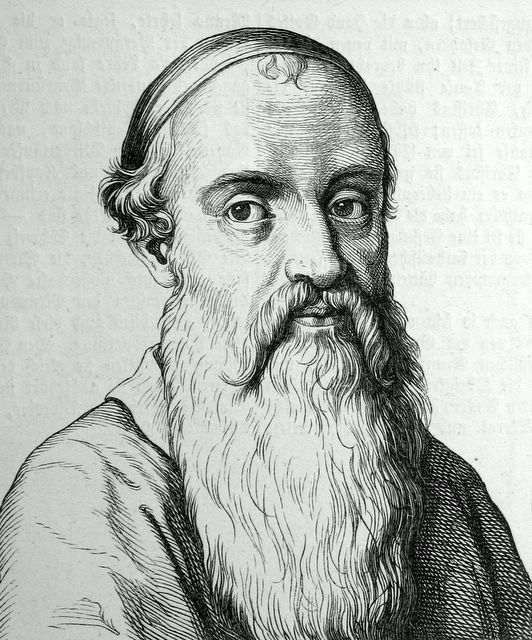Bible connection
Religion that God our Father accepts as pure and faultless is this: to look after orphans and widows in their distress and to keep oneself from being polluted by the world. — James 1:27
All about Menno Simons (1496-1561)
At the height of their persecution, one convert survived to give form and future to the Anabaptist movement. Menno Simons was a Catholic priest born in modern day Netherlands. While studying the Scriptures for the first time (even though he had been a priest for over a decade), Simons realized he was in conflict with church leaders about transubstantiation. A few years later, around 1531, Simons heard about “rebaptizing” when Sicke Snijder was beheaded, the first Anabaptist martyr in the Netherlands. He was moved to study and found that infant baptism was not in the Bible. He began having more contact with Anabaptists, and while the date of his own adult baptism is not known, those who harbored Simons were arrested for the offense.
The Mennonites, a religious group descended from the 16th century Anabaptists, take their name from Menno Simons. His moderation, after the militant excesses of the fanatical Anabaptist Kingdom of Munster (1534 – 35), restored balance to the movement.
As Simons’ influence increased over the years, the Dutch Anabaptists became known as Mennonites. They developed a distinctive focus on evangelism. The most celebrated of Simons’ work: Why I Do Not Cease Teaching and Writing (1539) reads,
True evangelical faith is of such a nature it cannot lie dormant, but spreads itself out in all kinds of righteousness and fruits of love; it dies to flesh and blood; it destroys all lusts and forbidden desires; it seeks, serves and fears God in its inmost soul; it clothes the naked; it feeds the hungry; it comforts the sorrowful; it shelters the destitute; it aids and consoles the sad; it does good to those who do it harm; it serves those that harm it; it prays for those who persecute it; it teaches, admonishes and judges us with the Word of the Lord; it seeks those who are lost; it binds up what is wounded; it heals the sick; it saves what is strong (sound); it becomes all things to all people.
The Mennonites rejected infant baptism, the swearing of oaths, military service, and worldliness. They practiced strong church discipline in their congregations and lived simple, honest, loving lives in emulation of the earliest Christians. Because Mennonites refused to assume state offices, to serve as police or soldiers, or to take oaths of loyalty, they were considered subversive and as such severely persecuted. These persecutions led at various times to the emigration of Mennonite groups, such as one group’s escape to the American colonies (1683), where they settled in what came to be known as Germantown, now a neighborhood in Philadelphia. At the end of the 18th Century, merging this Anabaptist stream with influence from the Pietist movement, the River Brethren (later to birth the Brethren In Christ) were formed.
Menno Simons died a free man of natural causes on this day in 1561, 25 years after he had renounced his priestly vows. He was buried in his personal garden.
More
Here is all you might want to know from the Mennonite history website.
Online collection of Simons’ writings.
Admiring Menno Simons by Rod.
What do we do with this?
Read through the excerpt from the writings of Menno Simons again. Maybe we should all take a “dormancy” test. Are there an elements of the true evangelical faith that are less active in you or us than they ought to be? Does our relative lack of persecution quench the Spirit among us?
